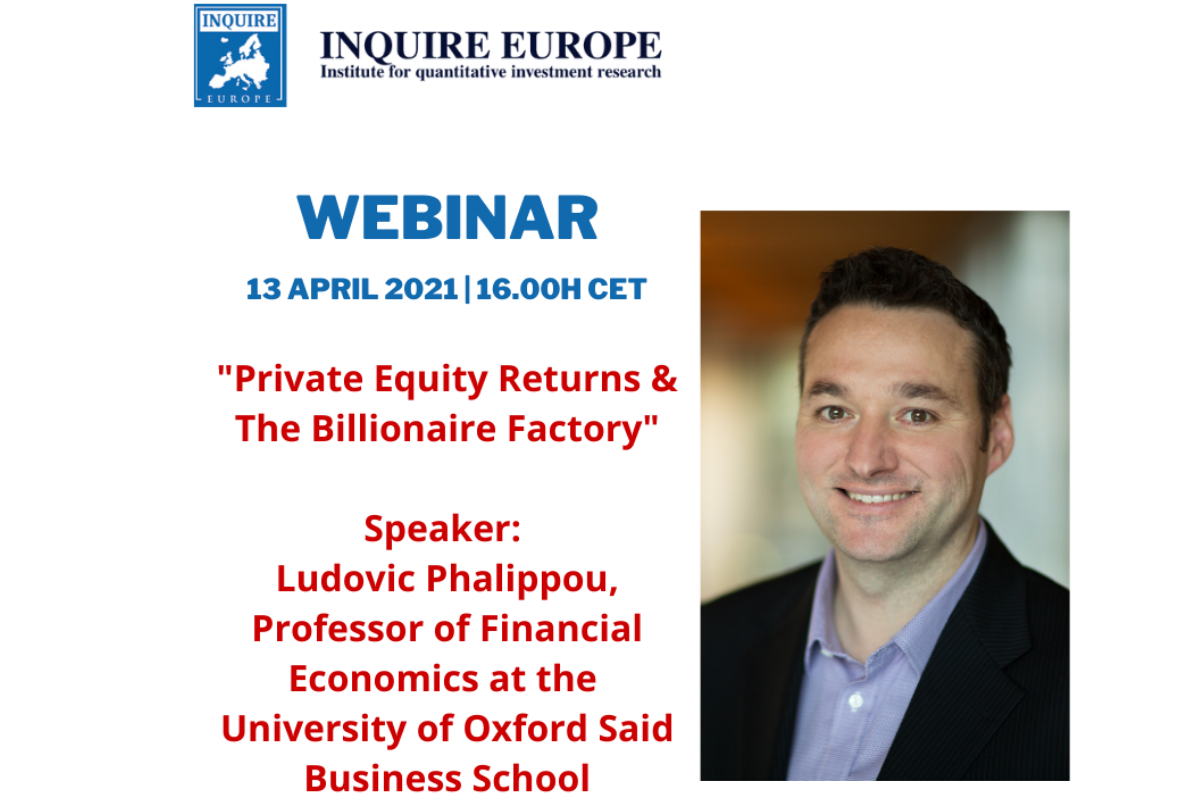
Unable to convene this year for our Joint Spring Seminar with Inquire Europe in Riga, we’re bringing our keynote speakers straight to your screens this spring.
Per Strömberg and Ludovic Phalippou will host separate webinars to showcase their research speaking to the relevance of private equity (PE) in the institutional investment landscape.
This comes on the back of a very interesting year for the asset class. According to a recently published Bain & Co. report, there was a slump in transactions due to the pandemic, but the largest PE managers ‘sprinted to the finish’ in the second half of 2020. PE firms closed a total of $592bn in deal value in 2020, up 8% from 2019 and 7% higher than the five-year average of $555bn. The percentage of debt used in buyout transactions accelerated in 2020; nearly 80% of transactions were leveraged at more than six times earnings before interest, taxes, depreciation and amortisation.
2020 was also a year in which special purpose acquisition companies (SPACs) garnered intense interest from investors. Many SPACs are sponsored by PE, and they raised more than $40bn last year for the purpose of mergers. In 2020, 248 SPACs raised a total of $83bn, up from a mere 19 SPACs raising less than $20bn the year before.
With these dynamics in mind, it is rather auspicious timing to host these two webinars.
The webinars are open to INQUIRE UK and Inquire Europe members only. We hope you will join us!
Presentation overview:
Ludovic Phalippou, Professor of Financial Economics, University of Oxford Said Business School, will join us on 13 April 2021 (16:00 CET) to present his paper: ‘An Inconvenient Fact: Private Equity Returns & The Billionaire Factory’, which has been widely circulated and commented upon.
The paper (which he worked on for 15 years) shows that private equity funds have returned about the same as public equity indices since at least 2006. Large public pension funds have received a net Multiple of Money (MoM) that sits within a narrow 1.51 to 1.54 range, similar to what stock markets have returned. Yet, the estimated total performance fee collected by these PE funds is estimated to be $230bn, most of which goes to a relatively small number of individuals. This is illustrated by a striking statistic: the number of PE multibillionaires rose from 3 in 2005 to 22 in 2020.
“How could this be an economic equilibrium? […] A combination of features – misleading performance information that was presented to investors, the fees being higher than those recorded in any other investment vehicles, the high transaction costs and the many layers of potential agency conflicts – suggested the outcome was unlikely to be positive for investors […and] some people have become extraordinarily rich. That wealth will not return to pensioners, universities, etc.”
Register now to secure your place.
